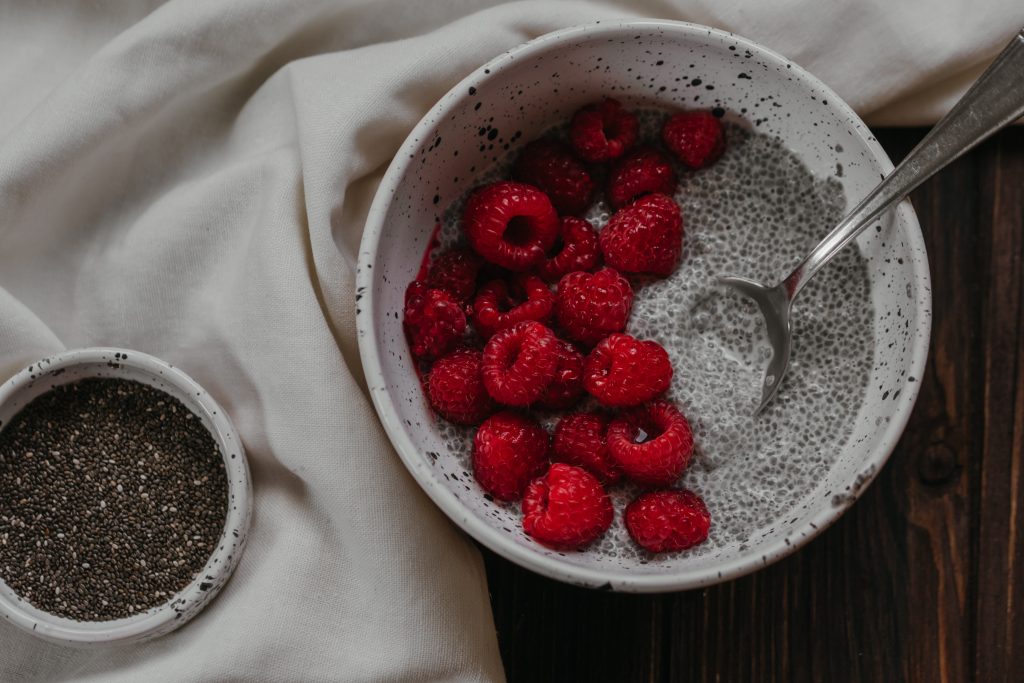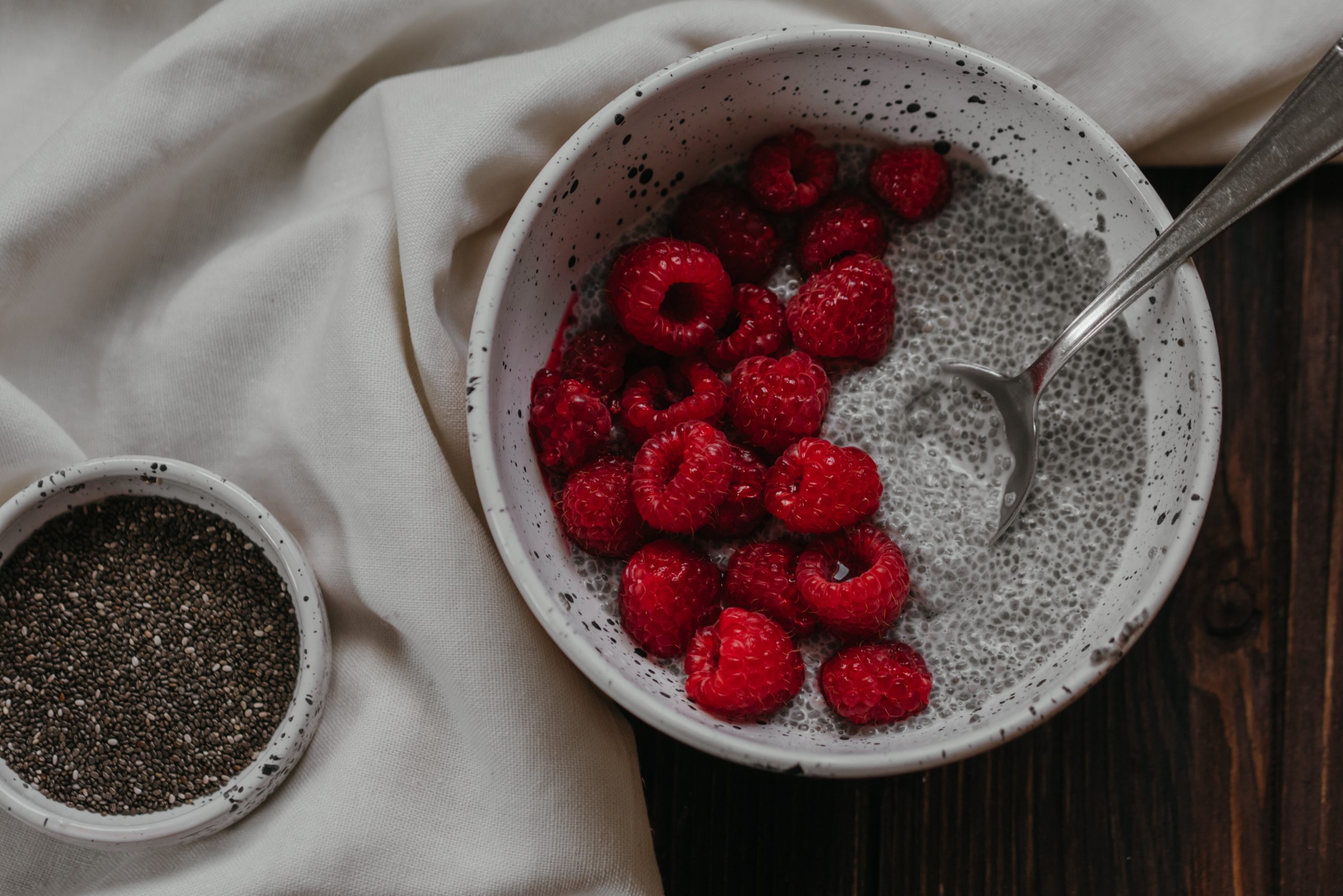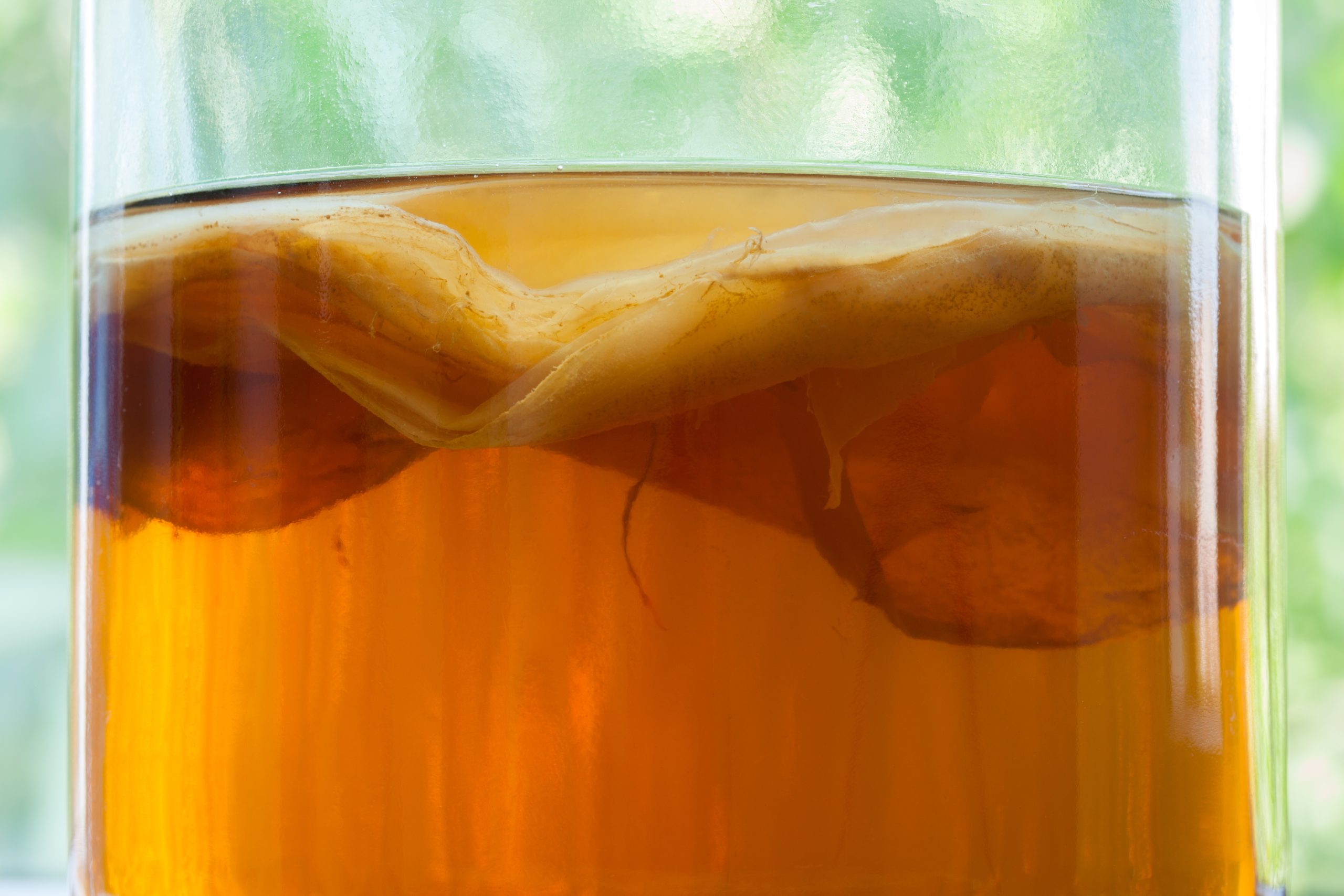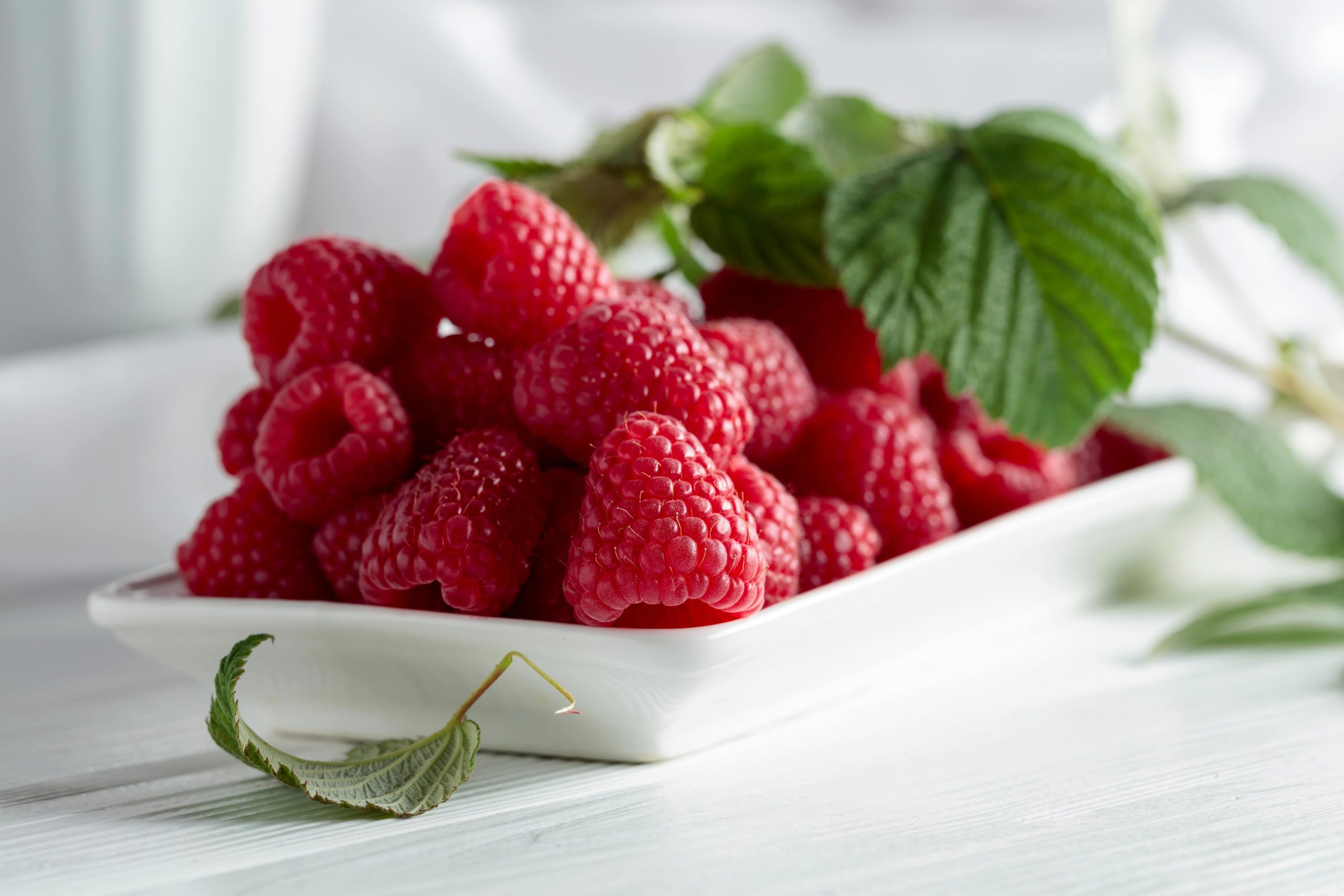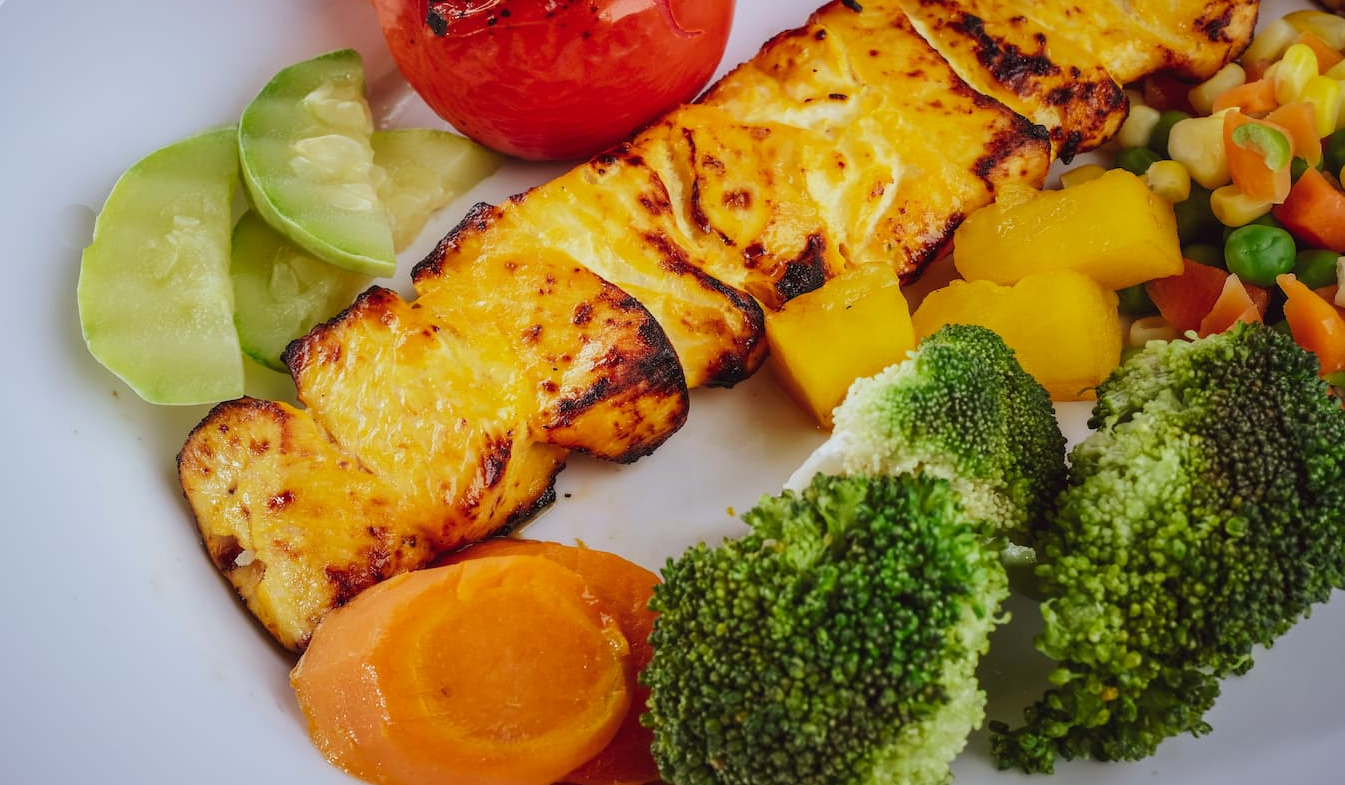Chia seeds have been a part of the human diet for a very long time. They were the basis for at least a third of the dishes of the ancient Aztec tribe. Historians have discovered that the product was prized by hunters and warriors: a small handful of it could satisfy hunger during a long march. According to the healers of that time, chia seeds not only filled the body with strength but also made it possible to cure many diseases quickly. It was a must-have food for pregnant women and children with poor health.
Nowadays, chia seeds have still not lost their popularity and relevance in the diet of people who like to try something new in nutrition and want their ration to be balanced.
Chia Seeds – Nutrition facts

Chia seeds have a very high energy value and medium protein. High fat and carbs and no sugar content. Also, high fibre and low glycemic index are great for your blood sugar levels. There is also a super good amount of calcium, iron and magnesium.
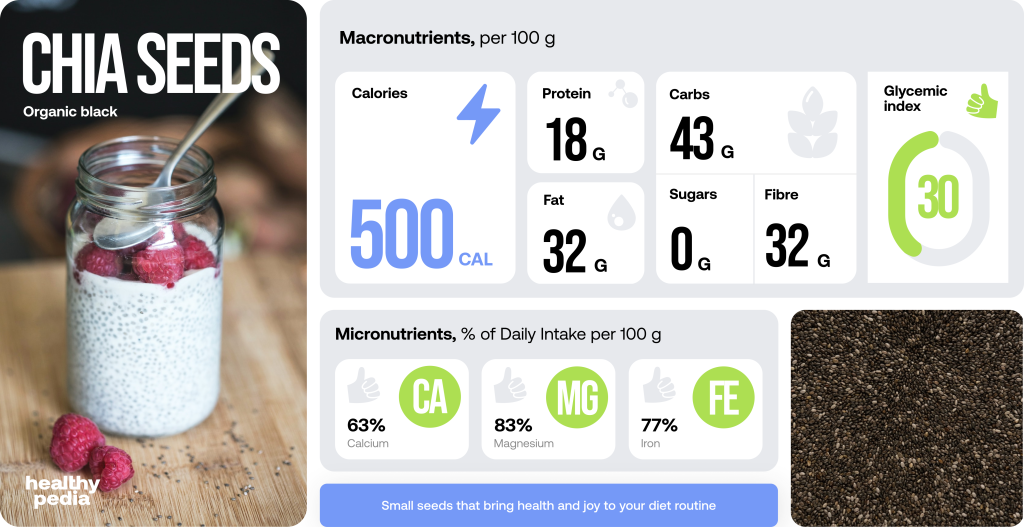
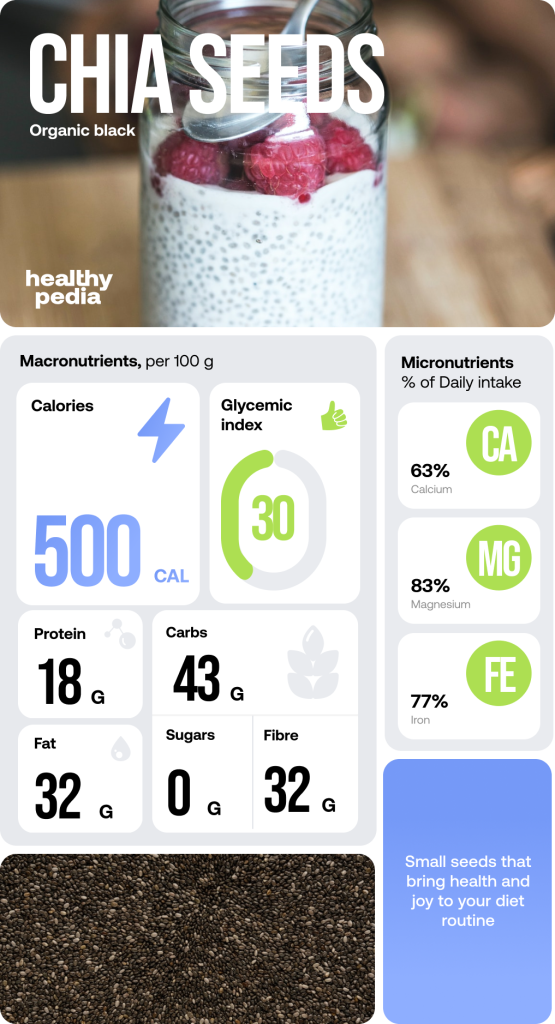
Chia seeds – Some exciting news

Despite their tiny size, chia seeds are full of nourishing elements, including Omega-3 fatty acids, iron, calcium and antioxidants. They have a mild, nutty flavour and can be a good addition to a balanced diet.
1Protect your heart
Considering that chia seeds are high in fibre and omega-3, eating them may reduce the risk of heart disease. The consumption of fibre has beneficial effects on the cardiovascular system which may be due to its impact on reducing the concentration of total cholesterol in blood serum and LDL ‘bad’ cholesterol. Consumption of the omega-3 fatty acid (α-linolenic acid/ALA) found in chia seeds is also associated with a reduced risk of heart disease.
A group of scientists found that consumption of 1g/day of ALA was associated with a 15% reduction in the risk of developing coronary heart disease (CHD) and a 23% reduction in the risk of death from CHD in men.
 Source: CambridgeCore
Source: CambridgeCore 2Lower blood sugar levels
People with diabetes have high blood sugar levels. Animal studies have shown that chia seeds and chia oil can improve insulin sensitivity. This can help stabilise blood sugar levels after a meal.
A 2022 study suggests that the fibre in chia seeds is beneficial for people with diabetes.
3Make your bones stronger
Chia seeds contain several nutrients important for bone health, including calcium, phosphorus and magnesium. Getting enough of these nutrients is important for supporting bone mineral density – an indicator of strong bones.
Calcium is directly involved in the formation and maintenance of bone tissue. It is the major component of the bone, where it is present at more than 99% as calcium-phosphate complexes and provides the skeleton strength and structure, making the bone a metabolic reservoir to maintain the intra- and extra-cellular calcium pool.
Magnesium plays a role in more than 300 processes throughout the body, including the regulation of the parathyroid gland. This gland controls the mineralisation of new bone. Since magnesium is an essential component of the bone matrix, about 60% of total magnesium is stored in the bone, it regulates the mineralisation process and is one of the minerals involved in the bone-building process.
Phosphorus mediates almost all biological processes in the body, including the mineralisation of the human skeleton. In the adult human body, about 90% of total phosphorus is stored in the bones in the form of hydroxyapatite (calcium phosphate) crystals.
 Source: National Library of Medicine
Source: National Library of Medicine Regular consumption of chia seeds can, therefore, help keep bones strong and healthy.
4Help with weight loss
The fibre and protein in chia seeds can benefit people trying to lose weight. And chia seeds are a good source of both. The protein in chia seeds can help reduce appetite and food intake by reducing levels of the hunger hormone ghrelin. This stops the craving for overeating, making the weight loss process as comfortable as possible. Also, protein requires a lot of energy for its digestion and absorption.
5Have a great antioxidant content
Antioxidants not only protect the sensitive fats in chia seeds from going rancid but also benefit human health by neutralising reactive molecules known as free radicals, which can damage cellular compounds if they accumulate in the body. Free radical damage promotes ageing and diseases such as cancer.
The particular antioxidants in chia seeds include chlorogenic acid, caffeic acid, myricetin, quercetin and kaempferol. They can all have protective effects on the heart and liver and also have anti-cancer properties.
Chlorogenic acid can help lower blood pressure and caffeic acid has an anti-inflammatory effect.
6Can easily be added to the diet
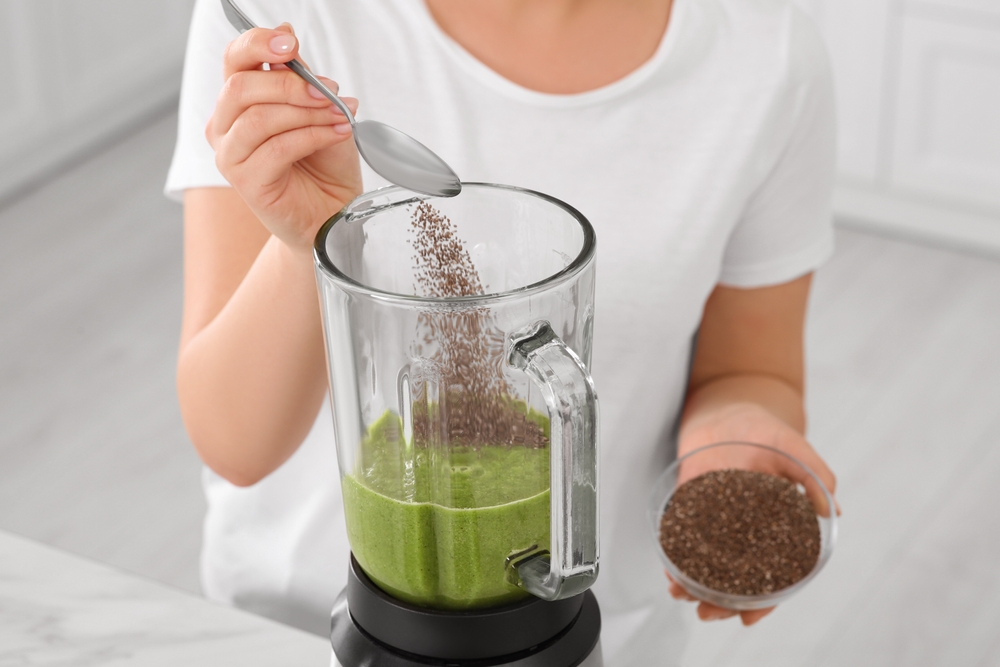
Chia seeds are incredibly easy to include in your diet. They are quite tasteless, so they can be added to almost all dishes. The convenience of not having to chop, boil, or cook them makes them a good addition to recipes.
They can be soaked in juice or added to oatmeal, pudding, smoothie and baked goods. You may sprinkle them on top of cereal, yoghurt, vegetables or rice dishes. They are also great for making homemade pancakes as a binder.
Chia seeds – Bad news

Chia seeds are undeniably beneficial for your health. However, even healthy foods sometimes can have side effects.
Chia seeds are a good source of fibre, 100 g of seeds provide you with 32 g of fibre. But too much fibre can cause problems for some people.
Overconsumption of fibre can lead to stomach pain, constipation, diarrhoea, bloating and gas. It can also be the result of not drinking enough water, as water is necessary for the fibre to pass through the digestive system.
Further, people suffering from ulcerative colitis or Crohn’s disease may need to limit fiber intake and chia seeds consumption during exacerbations.
Although they are safe for most people, chia seeds can cause an increased risk of choking. Therefore, consume them with caution, especially if you have difficulty swallowing.
This increased risk is due to the fact that dried chia seeds swell and absorb liquid 10-12 times their weight when they hit the water. These gelling features can be useful in cooking or baking, but they can also be unsafe as the chia seeds can easily swell up and get stuck in the throat.
In one instance, a 39-year-old man had a dangerous incident with chia seeds when he ate a tablespoon of dried seeds and then drank a glass of water. The seeds dilated in his oesophagus and caused a blockage and he had to go to the emergency room to have the seeds taken out. While this is just a single case, it underscores the importance of exercising caution when consuming chia seeds.
Fun & curious facts about chia seeds
-
Chia seeds are a great quality protein source and can be a great plant-based substitute for eggs.
-
Chia seeds are scientifically called Salvia hispánica, although they do not come from Spain but from Mexico and Guatemala.
Are chia seeds cost-efficient?

Chia seeds have gained popularity for their health benefits and as a trendy addition to almost any dish. Chia seeds contain an excellent amount of protein and are quite affordable compared to, for example, pine nuts, which are much more expensive and have a lower protein content.
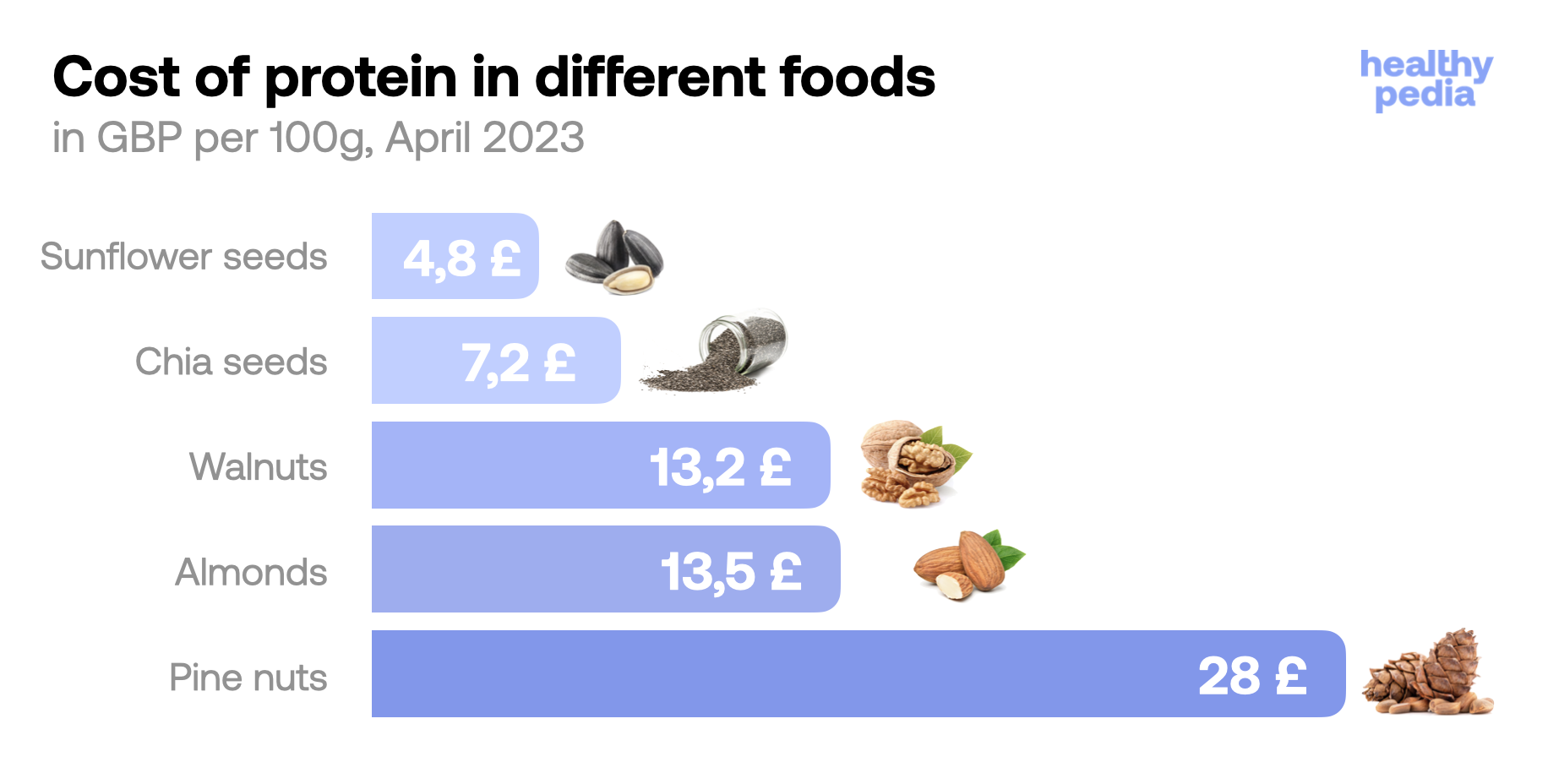 Source: Healthypedia
Source: Healthypedia Chia seeds in the Blue Zones
Chia seeds, a staple of the Adventist diet in Loma Linda, California, contain a huge amount of nutrients as well as an energy-boosting blend of omega-3 fats, fibre, protein, vitamins, and antioxidants for longevity. Long-livers in Loma Linda make a tasty creamy coconut pudding with chia seeds and berries.
Let’s sum up chia seeds

Including chia seeds in your diet has many benefits. They will protect your heart, reduce blood sugar levels, strengthen your bones and even help you lose weight. They are also rich in antioxidant content and can be easily added to your favourite dishes. However, you should also be careful when consuming these seeds, overeating chia seeds can lead to intestinal discomfort.
Not enough? Here is more
Here is a video from Dr. Eric Berg who specialises in Healthy Ketosis and Intermittent Fasting. He is the director of Dr. Berg’s Nutritionals and a best-selling amazon.com author. In this video, Dr. Berg will tell you about the amazing benefits of chia seeds and why you need to eat them.

